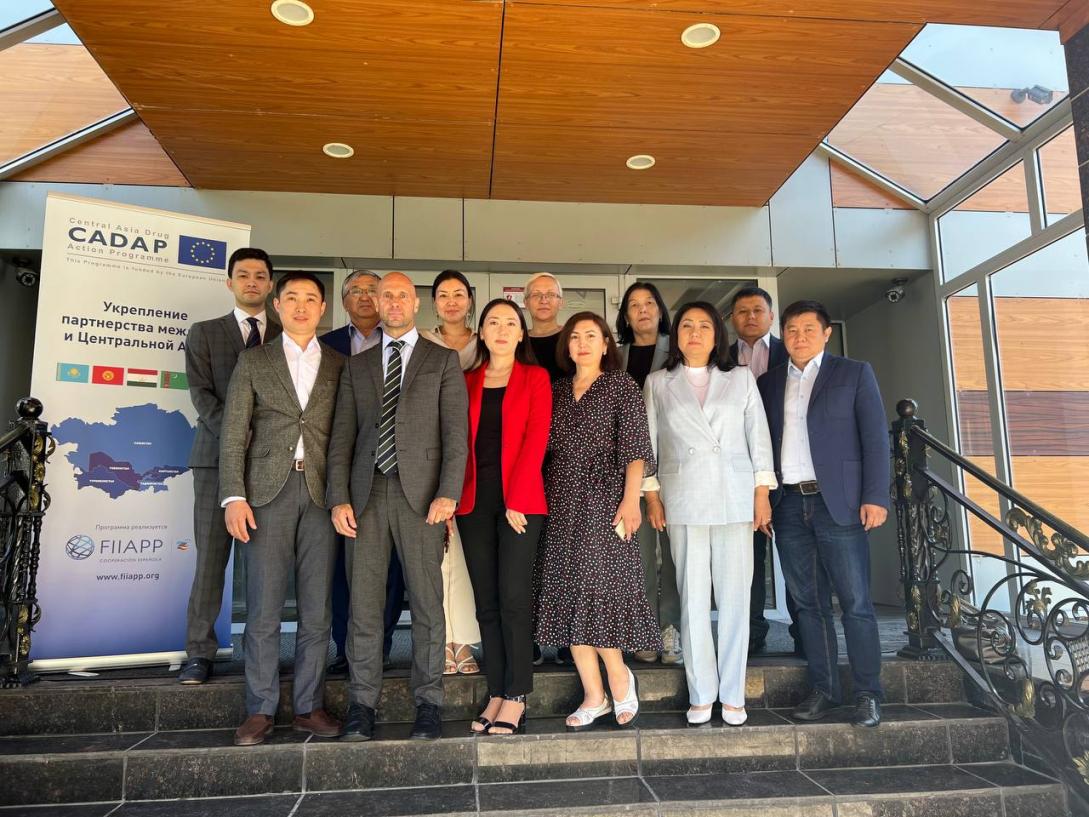CADAP Programme and its national partners wrapping up the progress and making plans for the future

The EU-funded Central Asia Drug Action Programme, 7th Phase (CADAP 7) starts the 2nd round of Technical Committees meetings to discuss the main developments within the action to date and agree on the way forward. First meeting from the series has been conducted in Nursultan, Kazakhstan, on June 16, 2022. The action’s main stakeholders were convened to the event, including the EU delegation and the Government authorities such as the Ministries of Internal Affairs, Justice, and the General Prosecutor’s office.
Messrs. Cosimo Lamberti and Youri Skaskevitch, EU Delegations Programme Managers in Kyrgyzstan and Kazakhstan opened the event and highlighted that “the technical committee targets the needs of a wide range of partners: policy makers, law enforcement bodies and health specialists.”
In his welcoming remarks Mr. Meirzhan Kaliaskarov, Prosecutor of the Department for Supervision of the Legality of Operational-Investigative, Counter-Intelligence Activities and Covert Investigative Activities of General Prosecutor Office of the Republic of Kazakhstan expressed appreciation on strategic partnership with the European Union in this matter and wished that “the positive trend will continue and will be strengthened”.
The meeting resulted in forming and agreeing on a country work plan of the Programme for the upcoming year with specific outputs, activities and technical partnership arrangements.
Since its launch in 2003, the different phases of the EU-funded CADAP Programme have been supporting the governments of Kazakhstan, Kyrgyzstan, Tajikistan, Turkmenistan and Uzbekistan in implementing strategies and measures to reduce the demand for drugs, promoting prevention initiatives and improving the treatment offered by public institutions to drug users in the region. The new 7th phase, with a total budget of 6.8 million Euros, intends to continue targeting interventions in the development of integrated and evidence-based drug policies and to improve access to quality drug demand reduction initiatives to vulnerable groups, following a gender and human rights-based approach (HRBA).
